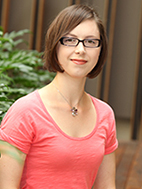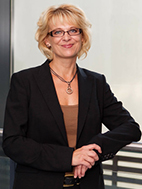Service Science and IS
Track Chairs

Marta Indulska
University of Queensland

Eusebio Scornavacca
University of Baltimore

Virpi Kristiina Tuunainen
Aalto University
Description
The aim of this track is to examine both theoretically and empirically how ICT is supporting, enabling and transforming service in today’s global, digital, service oriented economy. Service Science is an emerging field that fosters a multidisciplinary approach to the study of service systems which are value co-creating configurations of people, technology, internal and external stakeholders connected by value propositions and shared information (such as language, laws, measures, models, etc.). Service Science and IS research together may integrate domain knowledge and methodologies from existing disciplines such as business/management, technology, people and organization, computers and information systems, to provide unique contributions to academic and industry practice.
Topics of Interest
Topics of interest include, but are not limited to:
- Service Science concepts and theory
- Research methodologies for Service Science
- Service creation or provision in digital ecosystems
- Development of cyber-physical services
- Business models and value proposition of digital services
- Business models and value proposition of inter-organizational service systems/networks
- Service innovation methodology and case studies
- Design thinking for service systems
- Service modeling
- Aligning business and ICT through service management
- ICT and service strategies
- Service quality
- Service analytics
- Theories, strategies and approaches for service design
- Business process synthesis and decomposition within service systems
- Service-oriented computing for dynamic provision of services
- Methodologies, techniques, and tools for automated service composition and delivery
- Service Virtualization and Materialization
- Empirical studies on servitization
Associate Editors
- Carlo Bellini, Federal University of Paraíba (UFPB), Brazil
- Daniel Beverungen, University of Munster, Germany
- Tilo Böhmann, University of Hamburg, Germany
- Christoph Breidbach, University of Melbourne, Australia
- Frada Burstein, Monash University, Australia
- Joseph Davis, University of Sydney, Australia
- Eriwn Fielt, Queensland University of Technology, Australia
- Aditya Ghose, University of Wollongong, Australia
- Jonas Hedman, Copenhagen Business School, Denmark
- Axel Korthaus, Victoria University, Australia
- Hanne Westh Nicolajsen, IT University of Copenhagen, Denmark
- Esko Penttinen, Aalto University, Finland
- Jens Poeppelbuss, University of Bremen, Germany
- Mary Tate, Victoria University of Wellington, New Zealand
- Fons Wijnhoven, University of Twente, Netherlands
- Dongming Xu, The University of Queensland, Australia
- Stefano Za, LUISS Guido Carli University, Italy
-
Wasana Bandara, Queensland University of Technology, Australia
-
Dina Koutsikouri, University of Gothenurg, Sweden

